Sovereign AI: National Autonomy in the AI Era
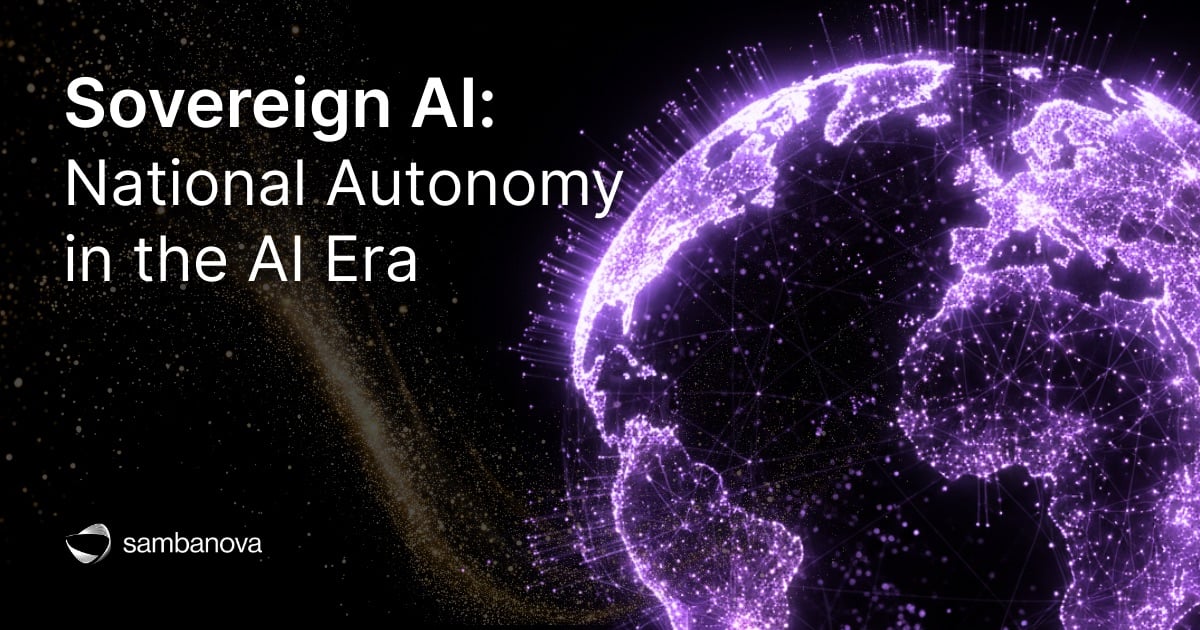

Sovereign AI: National Autonomy in the AI Era
January 27, 2026
Inference Speed or Throughput? With RDUs, You Don't Have to Choose


Inference Speed or Throughput? With RDUs, You Don't Have to Choose
January 16, 2026
Solving The Infrastructure Crisis for AI Inference with Dataflow
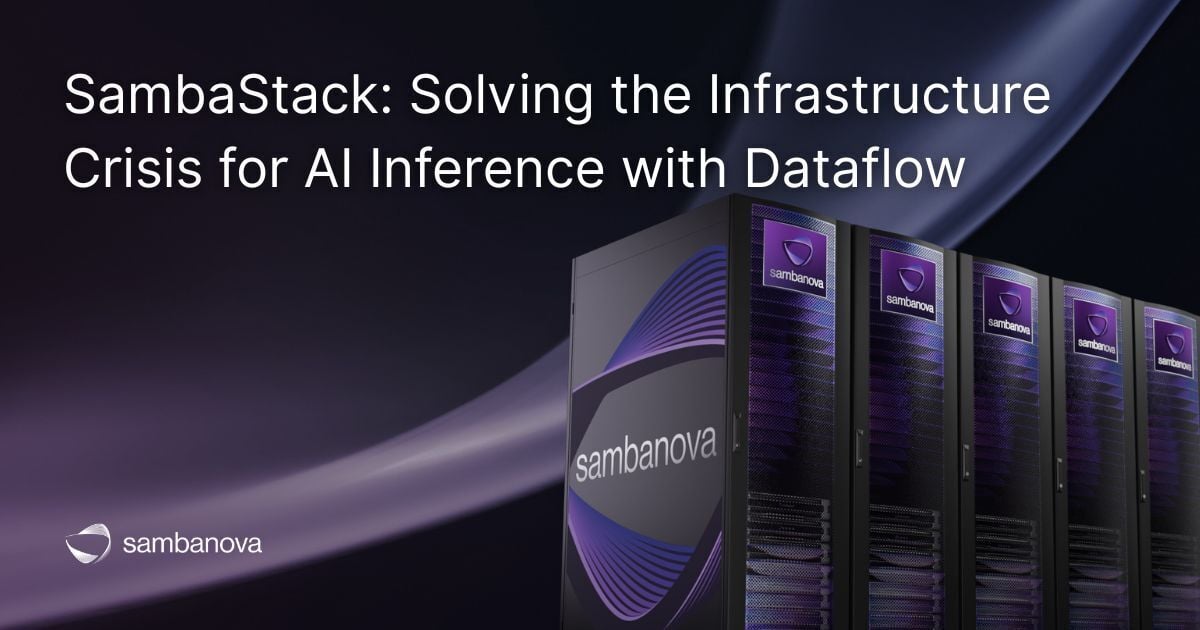

Solving The Infrastructure Crisis for AI Inference with Dataflow
January 13, 2026
AI Is No Longer About Training Bigger Models — It’s About Inference at Scale
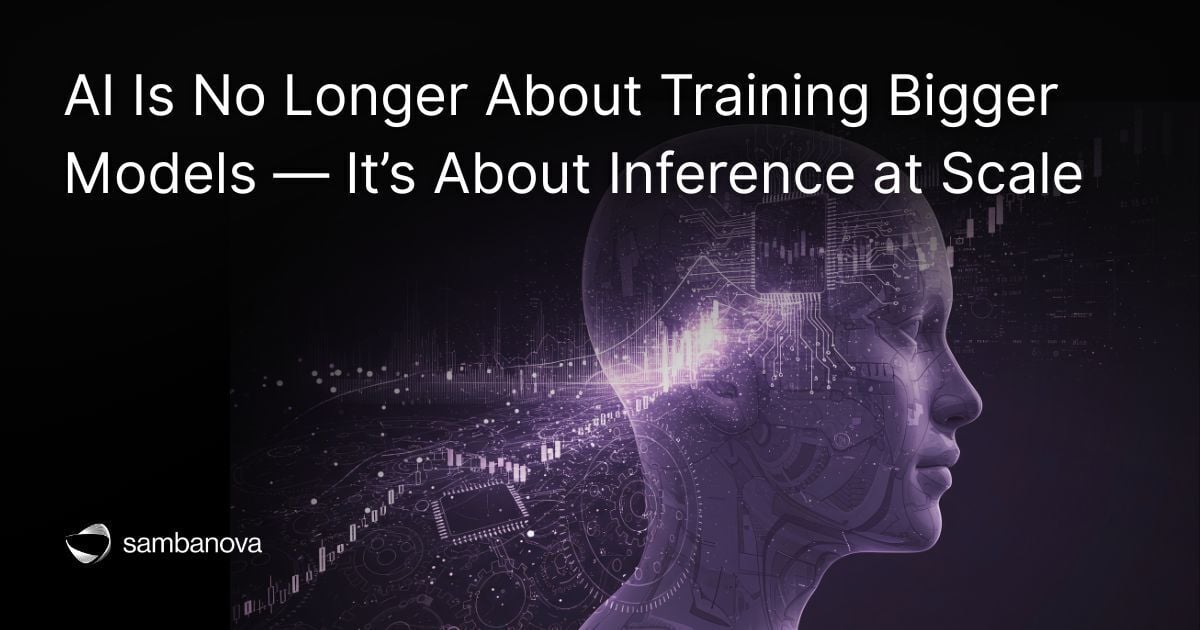

AI Is No Longer About Training Bigger Models — It’s About Inference at Scale
January 5, 2026
Same Model, Three Platforms: What Function Calling Benchmarks Reveal


Same Model, Three Platforms: What Function Calling Benchmarks Reveal
December 23, 2025
Why Modern AI Infrastructure Demands Model Bundling, Not One-Model-Per-Node Thinking


Why Modern AI Infrastructure Demands Model Bundling, Not One-Model-Per-Node Thinking
December 22, 2025
AI in 2025: What We Got Right + Insights for 2026
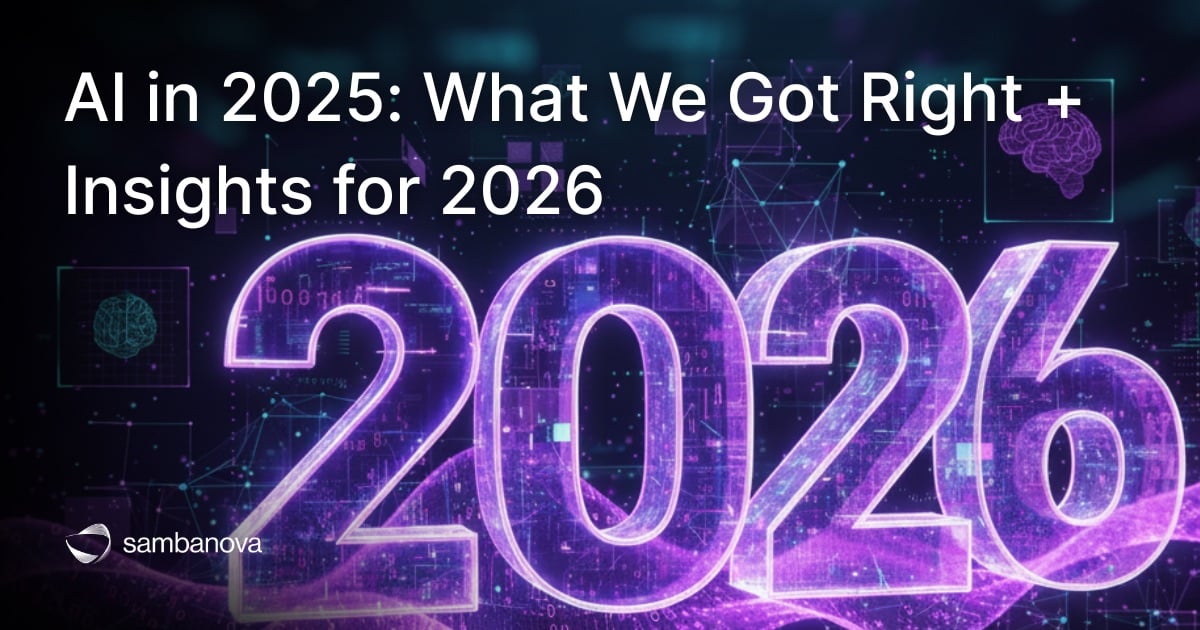

AI in 2025: What We Got Right + Insights for 2026
December 15, 2025
Building Australia’s First Inference Cloud: SambaNova & SCX Partner for Sovereign AI
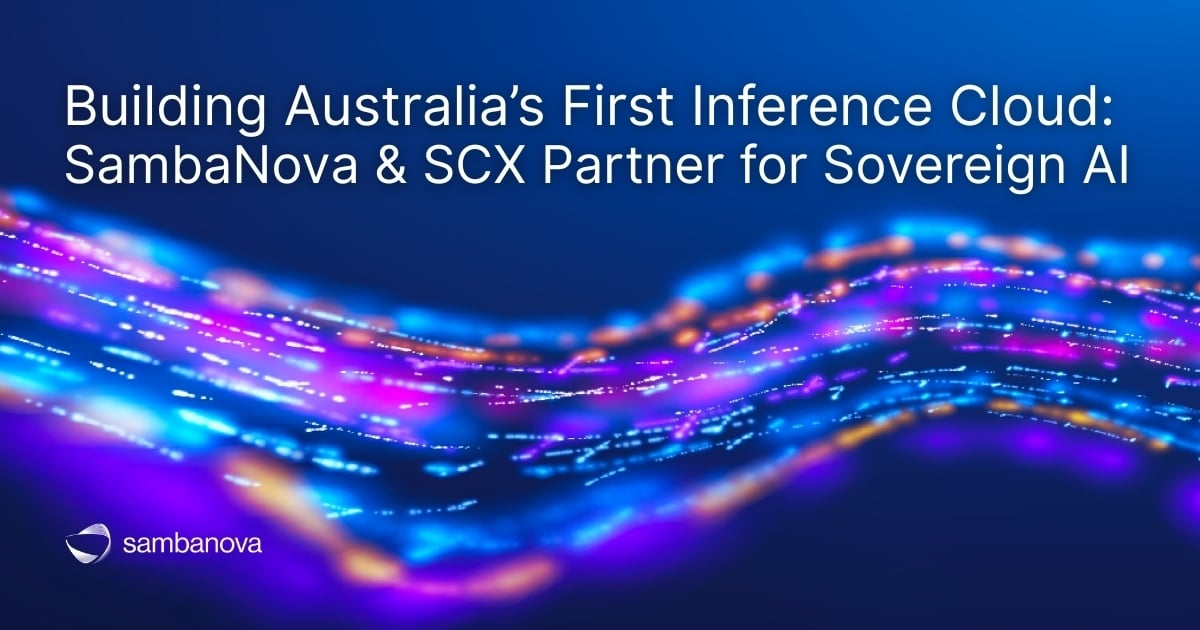

Building Australia’s First Inference Cloud: SambaNova & SCX Partner for Sovereign AI
December 3, 2025
Building Germany’s Premier Sovereign Inference Cloud: SambaNova & Infecom Partner for Scalable AI
.jpg)
.jpg)
Building Germany’s Premier Sovereign Inference Cloud: SambaNova & Infecom Partner for Scalable AI
December 3, 2025
Launching the UK's First Sovereign AI Inference Cloud: SambaNova & Argyll's Renewable Revolution
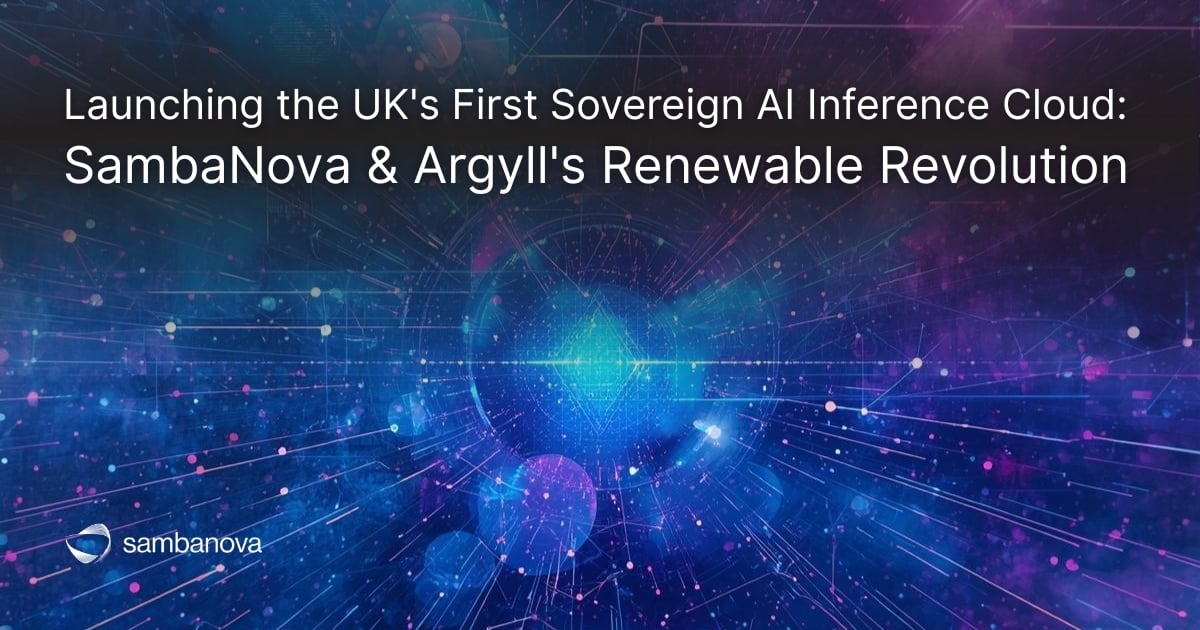

Launching the UK's First Sovereign AI Inference Cloud: SambaNova & Argyll's Renewable Revolution
December 3, 2025
Your Agents Just Got a Memory Upgrade: ACE Open-Sourced on GitHub
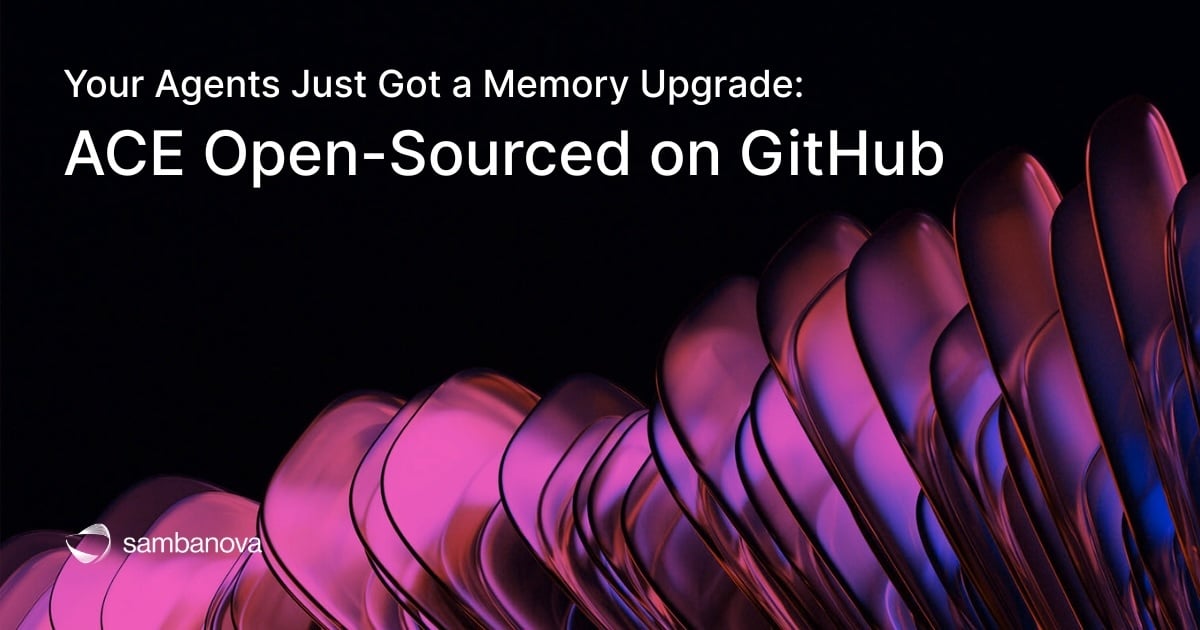

Your Agents Just Got a Memory Upgrade: ACE Open-Sourced on GitHub
November 19, 2025
Are LLMs Truly Solving Software Problems — or Are Agents Doing It?
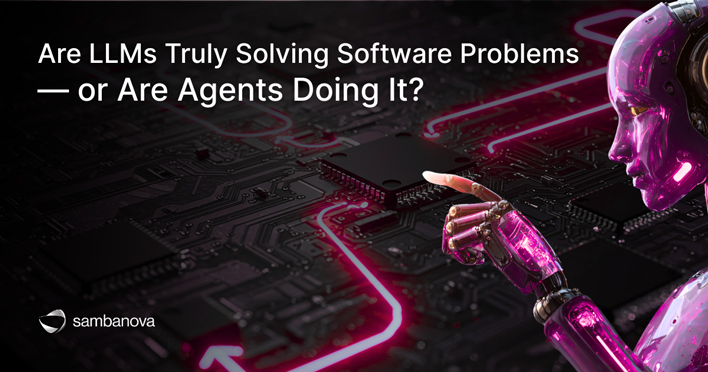

Are LLMs Truly Solving Software Problems — or Are Agents Doing It?
November 14, 2025
Understanding MCP: The Model Context Protocol Explained
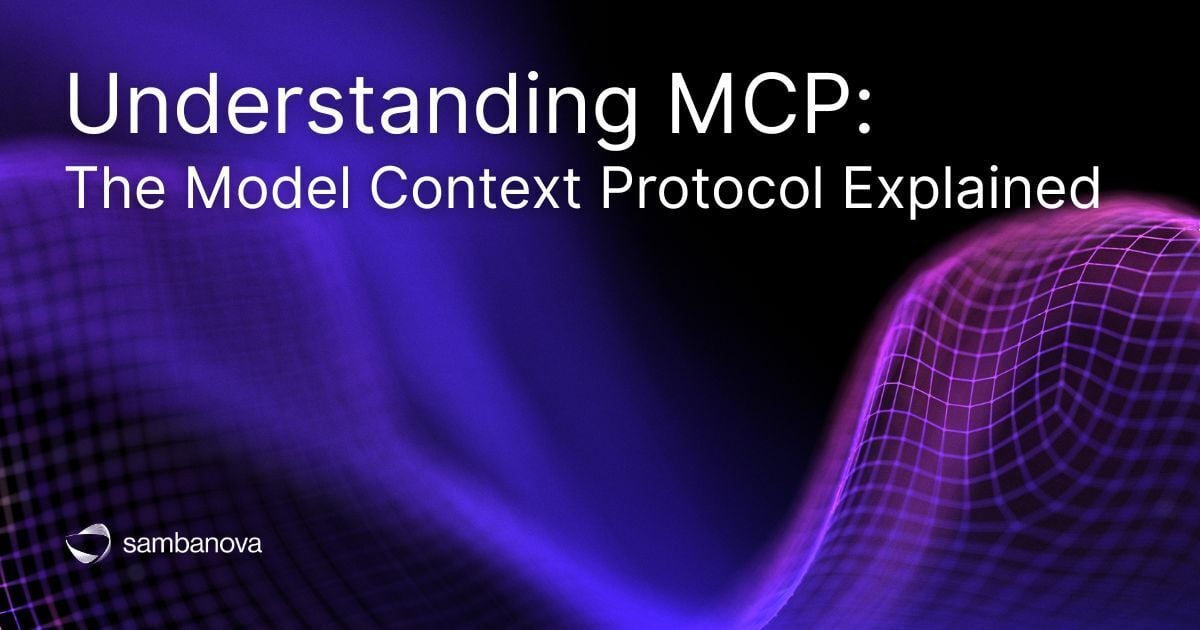

Understanding MCP: The Model Context Protocol Explained
November 13, 2025
Intelligence per Joule: The New Metric for True AI Value and Efficiency
.png)
.png)
Intelligence per Joule: The New Metric for True AI Value and Efficiency
November 12, 2025
Building Your First Agentic AI App with SambaCloud and n8n
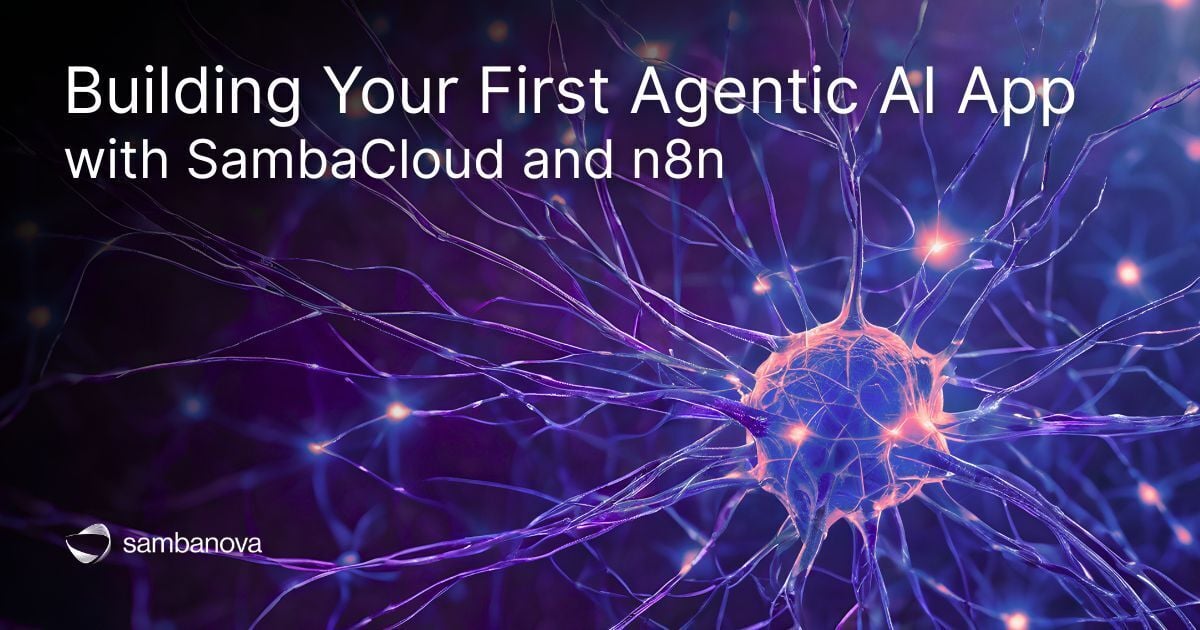

Building Your First Agentic AI App with SambaCloud and n8n
November 11, 2025
Understanding the Use of Large Language Models as a Judge
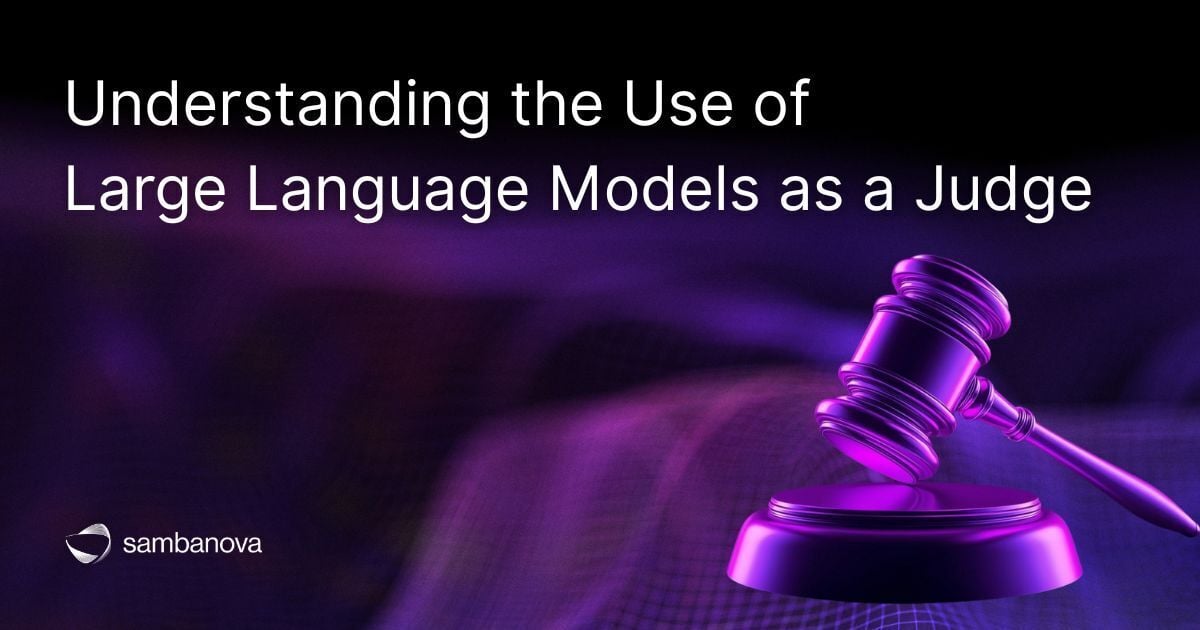

Understanding the Use of Large Language Models as a Judge
November 7, 2025
SambaNova Model Bundling: Unlocking Efficiency for AI Inference and Agentic Workflows
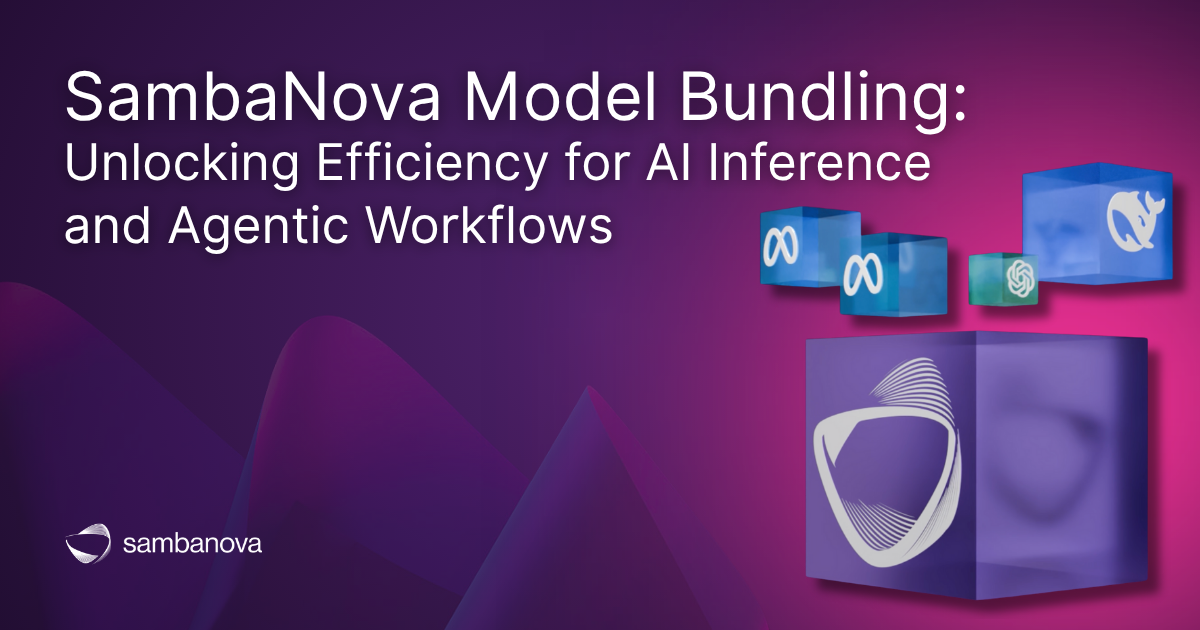

SambaNova Model Bundling: Unlocking Efficiency for AI Inference and Agentic Workflows
November 4, 2025
Redefining AI Infrastructure in a Power-Constrained World


Redefining AI Infrastructure in a Power-Constrained World
October 19, 2025
From Insight to Action with SambaNova Agents
.png)
.png)
From Insight to Action with SambaNova Agents
October 16, 2025
SambaNova and CrewAI Partner to Deliver Agentic AI at Scale on CrewAI AMP
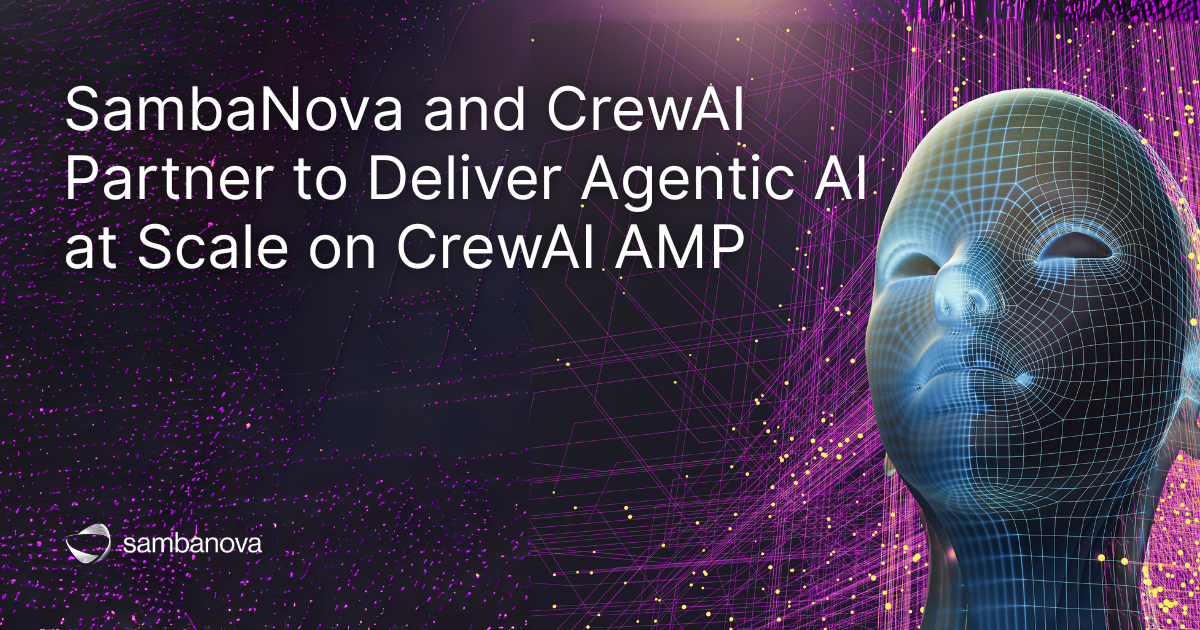

SambaNova and CrewAI Partner to Deliver Agentic AI at Scale on CrewAI AMP
October 14, 2025
Introducing the SambaNova SDK
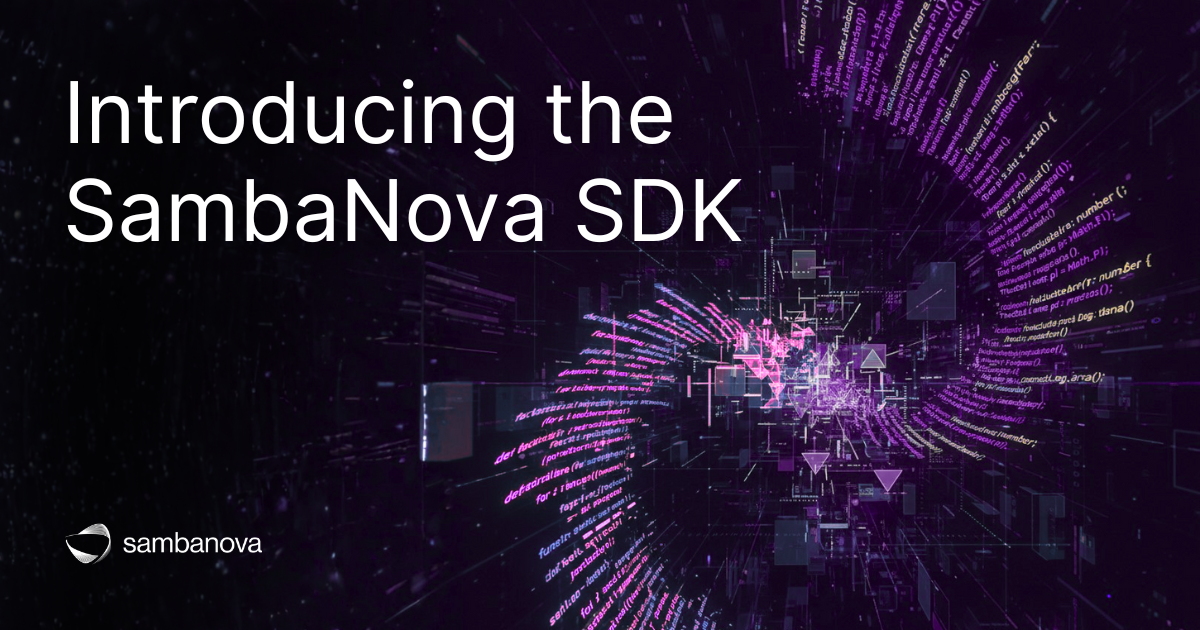

Introducing the SambaNova SDK
October 9, 2025
Start Building with The Fastest DeepSeek-V3.1-Terminus
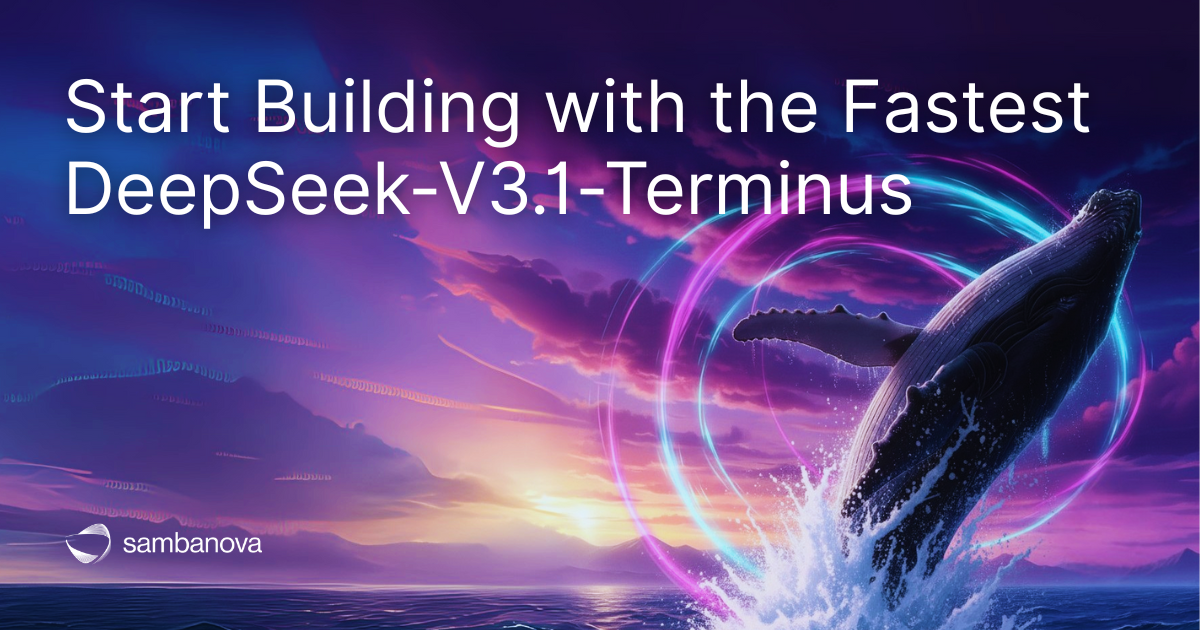

Start Building with The Fastest DeepSeek-V3.1-Terminus
September 30, 2025
Unlock Enterprise-Grade Security with Open-Source AI on SambaNova
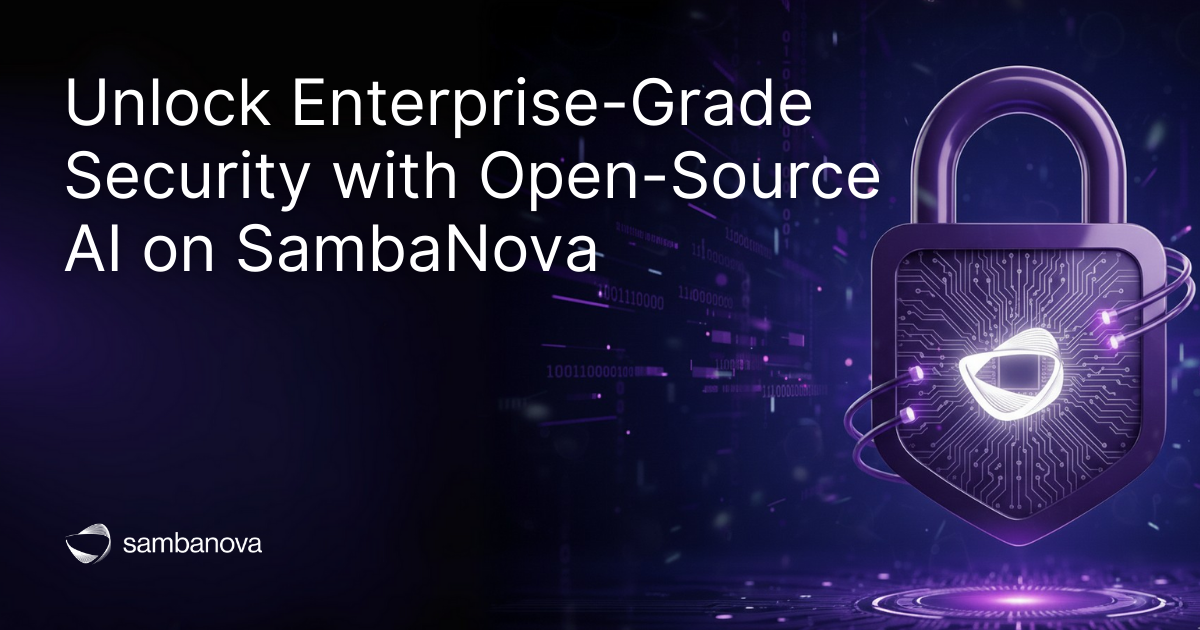

Unlock Enterprise-Grade Security with Open-Source AI on SambaNova
September 23, 2025
SambaNova Named to FORTUNE Future 50 List for Second Consecutive Year
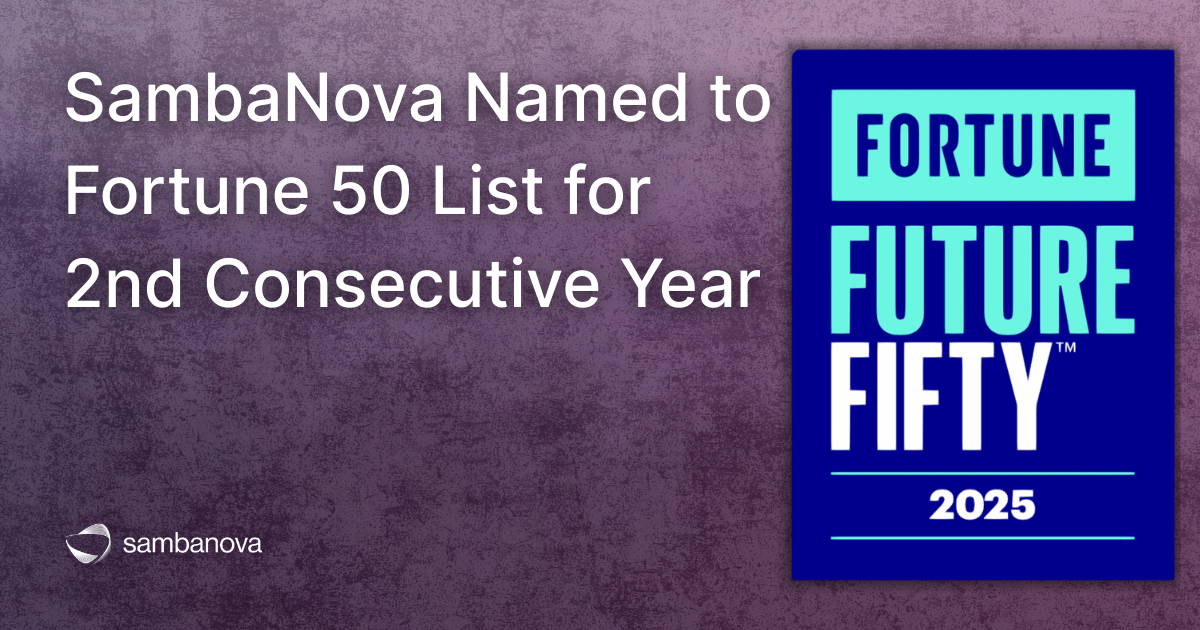

SambaNova Named to FORTUNE Future 50 List for Second Consecutive Year
September 16, 2025
